ENG2D
English, Grade 10
Prerequisite: English, Grade 9, Academic or Applied
Course Outline
Module 1 Overview: Story Telling - An Introduction
Guiding Question:
What are the basic elements of story, and how do authors use these to create meaning?
In this module, students will be introduced to the overarching concept for this course – the importance of story telling. We will start at the beginning – looking at a brief history of story telling and the importance it has played in human culture. We will then take a look at the building blocks of stories, including plot structure, some of the main pot types, as well as a few archetypal characters that you will likely recognize! Finally, we will take a look at MLA Citations, to ensure that you have an understanding of what constitutes plagiarism, and how to properly cite all of your assignments for this course (and beyond!)
Module 2 Overview: Indigenous Canadian Story Telling - Indian Horse
Guiding Question:
How can stories shape both our personal identity, and the identity of communities?
In this module, students will read and analyze Richard Wagamese’s novel Indian Horse. Richard Wagamese is an Ojibwe author from the Wabaseemoong Independent Nations from Northern Ontario. Wagamese published Indian Horse in 2012, which won the Burt Award for First Nations, Metis and Inuit Literature in 2013, and was in the running for the Canada Reads Award in 2013. In 2017, the novel was adapted into a feature length film, premiering at TIFF.
This novel recounts the story of Saul Indian Horse, an Ojibwe man who is telling his story from childhood, through to his experiences at a Residential school, and the trials that followed afterwards. We will take a look at a number of themes that present themselves in the novel, most notably the importance of story to creating identity, and the interconnection between language and identity.
Module 3 Overview: Othello - A Closer Look at Heroes
Guiding Question:
Can stories created hundreds of years ago remain relevant today?
In this module, students will read and analyze Shakespeare’s classic play Othello. We will start with an introduction to Shakespeare and Elizabethan life, and then delve into a number of topics that are brought up in this play. From race, and what the depiction of Othello meant in the early 1600s England (the play itself was written in 1603), to what we can see today. We will also look at the definition of some important literary terms – Tragedy, and the Tragic Hero, and how Shakespeare plays with these ideas in this work. We will also answer the question which is undoubtedly burning in all of your minds – why do English teachers demand we keep reading Shakespeare? Here we go!
Module 4 Overview: Canadian Novel Study - A Complicated Kindness
Guiding Question:
How can authors play with archetypes and plot structure to create meaning in their stories?
In this module, students will read Miriam Toews’ novel A Complicated Kindness. Miriam Toews is a Canadian author who grew up in Steinbach Manitoba in a Mennonite community. Toews published A Complicated Kindness in 2004, which won the Govoner General’s Award for Fiction that year, it was also shortlisted for the Scotia Bank Giller Prize. In 2006, A Complicated Kindness would be selected as one of the novels for Canada Reads, and would become the first novel written by a female author to win this prestigious competition.
This novel recounts the story of Naomi (“Nomi”) Nickel, a young Mennonite girl growing up in the fictional East Village, a town similar to the one Toews herself grew up in. The story is told from Nomi’s perspective, and chronicles her teenage years as she deals with her own questions about family, faith and community.
Students will take a look at a number of themes that present themselves in the novel, including the importance of story to community and family identity, as well as how one can use stories to create a reality for themselves.
Module 5 Overview: Poetry
Guiding Question:
How can poetry be used as a medium to tell a story, or to communicate a person’s beliefs and values?
In this module, students will read a wide variety of pieces of poetry to see how this medium can be used to share an author’s story and communicate their beliefs, values and history.


